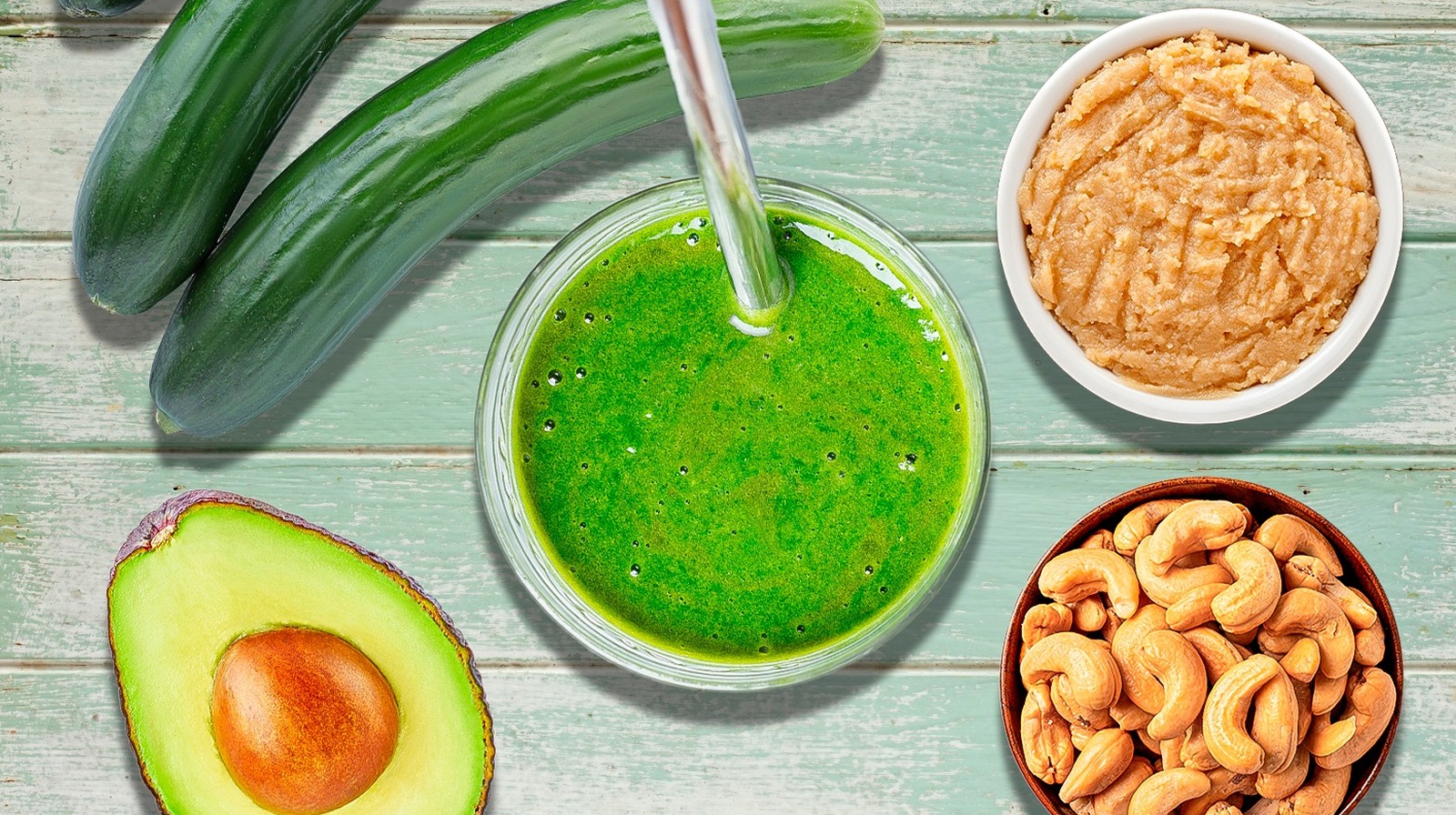It’s easy to get stuck in a smoothie rut. And when browsing the internet for new recipes, it’s nearly impossible to find ones that don’t include yogurt and whey protein powder. Although popular opinion may differ, we lactose-intolerant and plant-based folks know that beyond a few basics, we are not limited when it comes to smoothie ingredients.
There are endless fruits, veggies, nuts, seeds, and even legumes that are ready to take the dive into your blender, but finding the perfect combination takes either intuition or practice. To make things easier for you, we have selected our favorite ingredients to improve your plant-based smoothie. Many of these may seem out of the ordinary, but are worth a try.
Plenty of vegan ingredients can result in smoothies that are just as dreamy-creamy as those using Greek yogurt and whole milk. Whether you’re seeking a refreshing tropical smoothie, downing supplement-packed power shakes, or your sweet tooth is aching for a creamy vanilla confection, you’re just a few ingredients and the flip of a switch away. Start your day with an unforgettable smoothie that’s full of jazz and flavor.
Celery
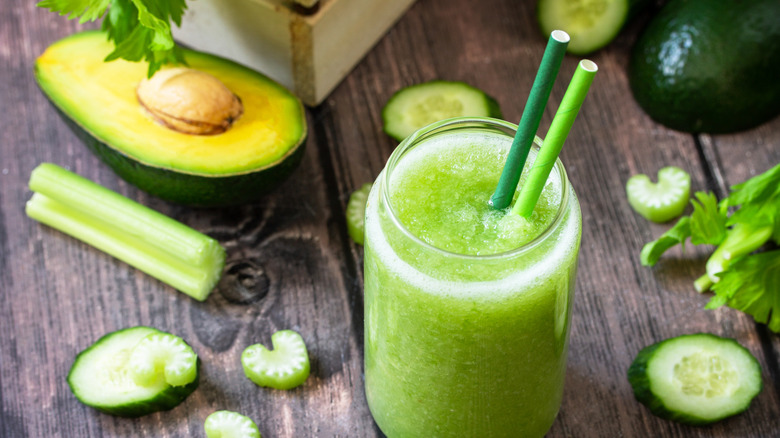
Salt in a smoothie? Umm, no thank you! But before you knock it, remember that even the sweetest chocolate cookies can’t thrive without at least a little sprinkle of salt. Salt simply helps to amplify flavors — in fact, salt is the one ingredient that your smoothie recipe needs, and it is likely missing.
A balanced mouthfeel includes notes of sweetness, salt, fat, and acid. Without the salt, a dish can taste incomplete, and drinks are no exception. Dumping salt right into your smoothie might feel like a stretch, so consider adding celery instead. Celery naturally contains sodium, and has a refreshing flavor to boot.
Even a single rib of raw celery can make a difference, and because it’s loaded with fiber and other nutrients, you can feel good about adding it to your morning routine. This vegetable tastes great in tropical fruit-based smoothies, berry-based smoothies, and stone fruit smoothies. In particular, celery can amplify the flavors in a refreshing smoothie containing ingredients like pineapple, cucumber, and citrus fruits. Keep in mind that celery is fibrous, so it must be blended with a high-speed blender for plenty of time to break down all of those notorious strands.
Cucumber
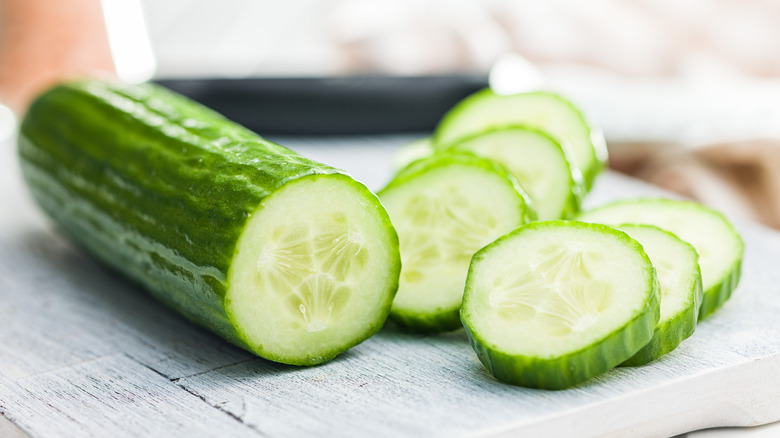
If you’ve ever heard that sprinkling cucumber with sugar makes it taste like watermelon, then this next suggestion may not come as a shock. Cucumbers can pair very well with fruit of all kinds, as well as add some refreshing sweetness to a smoothie containing vegetables. It’s a particularly good vegetable to substitute for liquid in smoothies, as cucumbers are mostly water-based.
Peel your cucumber first to avoid any chewy fibrous chunks, and feel free to freeze it beforehand and use it in place of ice. Because cucumber is subtle in flavor, it can be added to almost any smoothie recipe you have on hand. If you are interested in cucumber being the star of the show, pair it with strawberries and mint, or choose a more subtle route with frozen banana, dairy-free milk, spinach, and a little lemon juice. Feel good about adding more green fruits and vegetables to your morning smoothie, without worrying about it tasting like a vegetable garden.
Tahini
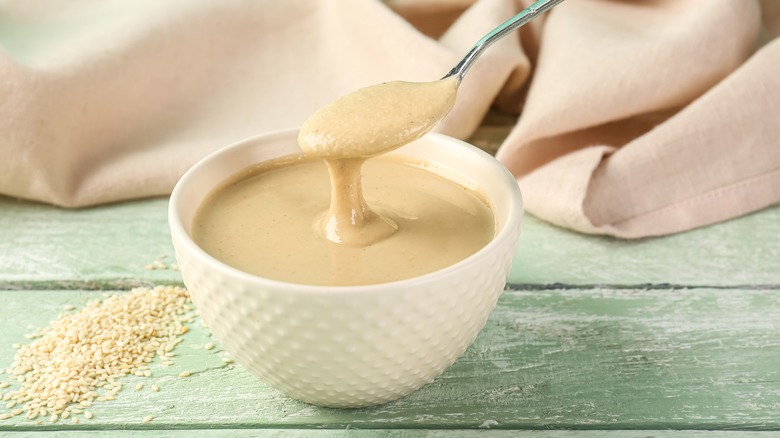
Oftentimes, people are reliant on yogurt and milk to make their smoothies creamy. For us lactose-intolerant or vegan folks, dairy-free substitutes work just fine. However, there is an ingredient that is ultra creamy, a whole food, and has its own subtle nutty flavor. Tahini, like nut butter, can be added to smoothies for protein, density, and a smooth and creamy texture — and this is just one of the many unexpected ways to use tahini in the kitchen.
Tahini is made from ground sesame seeds that are either toasted or raw. Typically, you’ll find the toasted version in most stores, which has a very pleasing flavor that is a bit stronger than the raw version. Unlike peanut butter or almond butter, tahini is rather subtle and can be used in greater quantity without dominating the flavor of the shake. Consider tahini in a banana-based smoothie with vanilla, or add it to your berry smoothie without disrupting the flavor. Tahini does well in plant-based shakes as well, and can also be whipped with water and drizzled on top of a smoothie bowl for a beautiful look.
Frozen banana
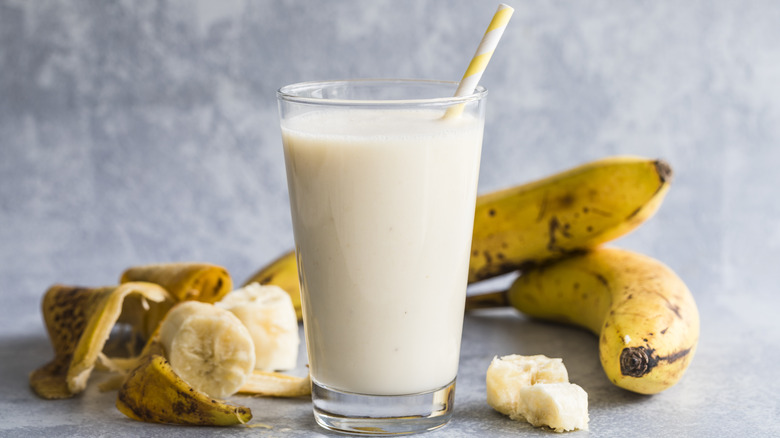
Angela Kotsell/Getty Images
If you have yet to discover the wonders of frozen bananas in smoothies, then saddle up. Frozen banana is the ultimate smoothie ingredient because when it’s blended, this one ingredient can taste just like ice cream. Because bananas are naturally sweet and creamy, they can make your smoothie taste just like a milkshake. Who says plant-based eating has to be boring? When you’re starting your day off with a vanilla or chocolate shake that is healthy, it’s easy to cut dairy out of your life.
Now, before you pop a whole banana in the freezer skins and all, we want to avoid a struggle when it comes time to make your smoothie. Frozen banana skins are very difficult to remove, and chipping away at them with a knife can be unsafe. Instead, peel your ripe bananas, and either break them apart or slice them into half-inch chunks. Place them in a freezer baggie or freezable container overnight, or up to three months.
Unsweetened cocoa
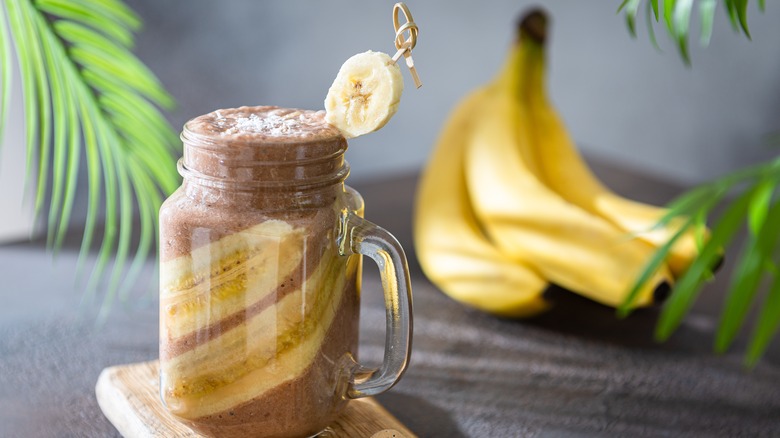
Imagine waking up to a decadent, creamy, chocolate shake every morning. Well, that sounds unhealthy, right? Instead of assuming a shake has to be dripping with refined sugars and dairy, hear us out.
Unsweetened cocoa powder can be added to a simple mixture of frozen bananas, vanilla, dairy-free milk, and a small whisper of sea salt. Add peanut butter, almond butter, or tahini for a heavenly density similar to a bar of chocolate. There are many types of cocoa powder, but we recommend unsweetened cocoa powder because it doesn’t contain refined sugars or any powdered dairy product. Let the fruit do the sweetening instead.
If chocolate shakes aren’t your thing, don’t fret. You can still incorporate cocoa powder into your smoothies and get all of those antioxidants without chocolate being the main flavor. Add a sprinkle to a berry-based smoothie, or use dark cherries, blueberries, or raspberries to create a pleasing outcome when pairing with rich cocoa powder.
Cashews
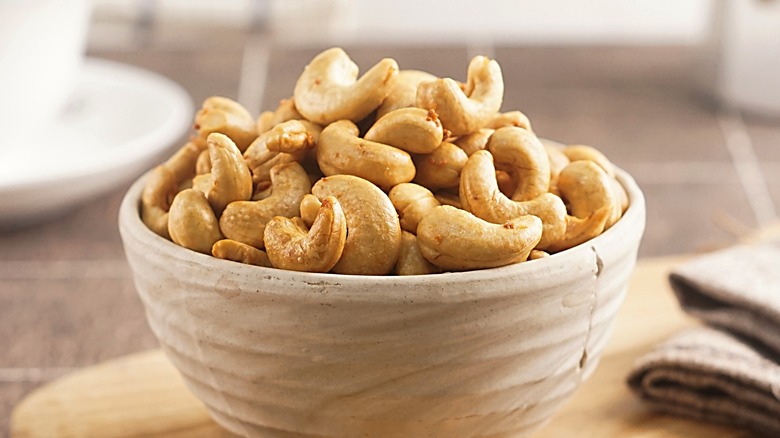
There are endless uses for cashews in the kitchen. One of the most ingenious uses is soaking and blending them to make cashew cream. This cream can be used as a substitute for just about any dairy product — including cheese, milk, and cream — and can even be used to make yogurt and icing. Because of this, it’s no surprise that cashews are a top-tier ingredient for those who refrain from indulging in dairy products.
The best way to ensure that your smoothie doesn’t end up with cashew chunks is to soak raw and unsalted cashews in water overnight, or soak them in warm water for at least 15 minutes. They should be soft enough to split when pinched between your fingers, and a high-speed blender will help ensure the creamy texture.
You may need to blend your smoothie a little longer than you typically do, but it’s well worth the extra effort to get an incredibly creamy texture with almost no change in flavor for your culinary creation. Enjoy your protein-packed, decadent smoothie loaded to the brim with cashew cream.
Leafy greens
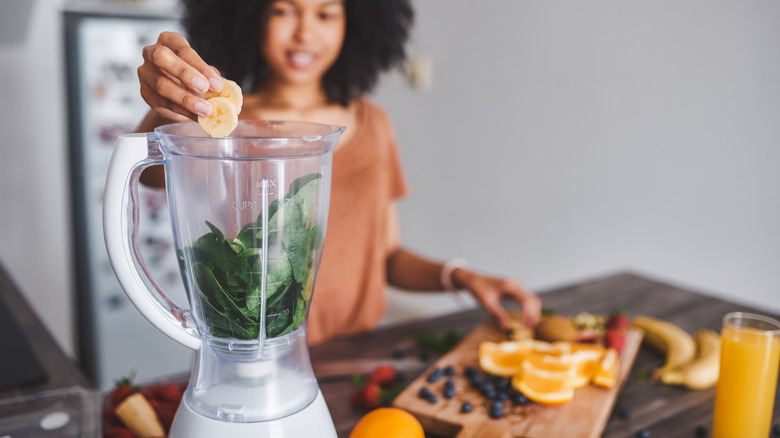
If you’re interested in sneaking more leafy greens into your diet, then smoothies are an easy and surefire way to get the job done. Raw leafy greens are recommended because they don’t carry a grassy flavor as heavily, and tend to have more refreshing notes and bright coloring. Kale can sometimes taste more “green” — and unless your blender is high-powered, you may end up with a few chewy bits and pieces. Spinach is an easy go-to addition to improve your plant-based smoothie, because even adding a handful will hardly touch the flavor of the shake. However, it will turn your smoothie bright green, or even brown if mixed with purple or red fruits.
Although it’s nice that spinach is mild, sometimes it’s good to have a leafy green that contributes more than just nutrients. Fresh herbs can get the job done! Add basil to your strawberry smoothie, or mint to your cucumber or chocolate smoothie. For those who are more adventurous, parsley can be added to a green smoothie alongside apples, ginger, and celery.
Avocado
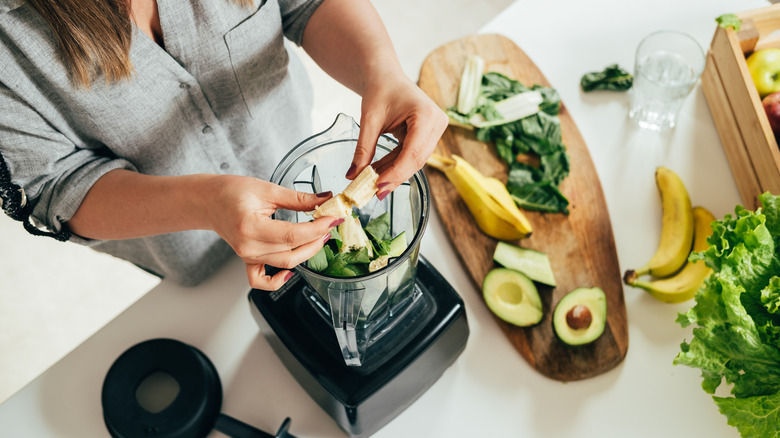
There are two kinds of smoothie drinkers in this world. Those who love a tangy, green smoothie with a fruit juice base, and those who prefer a creamy smoothie with a dairy-free milk base. For those who prefer the latter, consider making your smoothies extra enjoyable by adding everyone’s favorite toast topping: avocado. Not only will avocado create a deliciously fatty mouthfeel and add a boost of fiber, but it will also help a smoothie hold its structure on a hot day.
This ingredient can be particularly helpful when you find all of your avocados ripening at once and have an overload on your hands. Instead of eating avocado for breakfast, lunch, and dinner, freeze it in chunks. These chunks can be used in your smoothie, and luckily, won’t turn brown like they would in the refrigerator. Let frozen avocado be the star by blending it with vanilla and plant-based milk, or make an avocado blueberry smoothie recipe that will blow your mind. This mild ingredient won’t overpower your other ingredients, but will make your breakfast taste like the treat that it is.
Vanilla
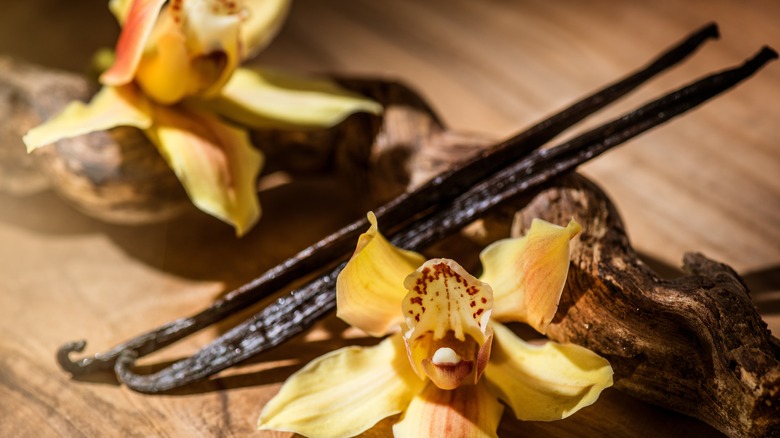
Homemade smoothies usually conjure images of fresh fruits. But there is a baking essential you should start blending into smoothies, and that’s vanilla.
As we know, just a small dash of vanilla can make all the difference, so be conscious about how much goes into your recipe. While you may have already been making vanilla shakes and smoothies, consider adding some vanilla to your berry and stone fruit smoothies as well. This will help your breakfast get one step closer to tasting like dessert, without all of the refined sugar of ice cream.
Fruits that have a honey-like sweetness, like peaches and pears, pair particularly well with vanilla. However, dark berries make a fantastic pairing as well. Picture your morning blend with blueberries, plant-based milk, frozen bananas, and vanilla extract. Use pure vanilla extract, or vanilla paste if possible. The vanilla paste will provide those little flecks of vanilla you may find in ice cream, which can give your light-colored smoothie a lavish aesthetic.
Espresso powder
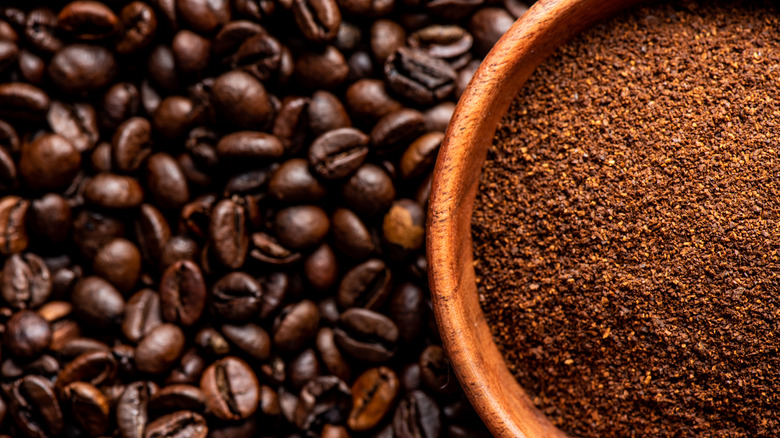
There are some people who cannot function without their morning coffee. Others enjoy it as a treat, and some load it to the brim with cream and sugar to the point when you can hardly call it coffee.
Whichever route you take when it comes to the famed roasted-bean beverage, there are many ways that you can incorporate it into your smoothie. Some use frozen coffee cubes, while others add iced coffee. Consider using a more condensed version with espresso powder, giving your smoothie a smoky, rich, and fragrant flavor with an added kick of caffeine.
Use both espresso powder and unsweetened cocoa for a rich-yet-bitter mocha flavor mix. Blend espresso powder with bananas, vanilla, and almond milk for a morning iced coffee with the sweetness of a milkshake. Sprinkle a dash into your dark berry smoothie, or use a dusting of it to garnish a smoothie bowl. If you don’t have any espresso powder on hand, substitute it with instant coffee.
Dates
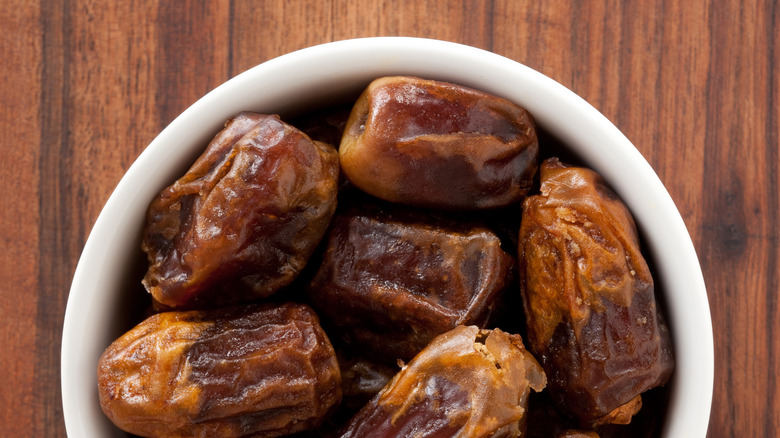
Dates are the dried fruit gem of the Middle East. They are incredibly sweet, super sticky, and have honey-like notes. Although eating plain dates might not be for everyone, blending them into your smoothie is a whole other game. If you’re looking to add sweetness to a smoothie but are avoiding refined sugars, date syrup should be your go-to alternative sweetener.
Date syrup can simply be made by blending dates with water, but when making a smoothie it’s okay to just drop the fruit right into the blender. If they contain pits, you will have to remove them beforehand, and it never hurts to soften the dates by soaking them in water, ensuring a smooth blend. Dates are loaded with fiber, so they are a great way to get things moving in the morning. Because of their sugar content, you can expect a nice energy boost as well.
But honestly, beyond their incredible health benefits, dates are just darn delicious, and can improve any plant-based smoothie. Even your greenest smoothie can turn sweet as can be with just a date or two.
Matcha
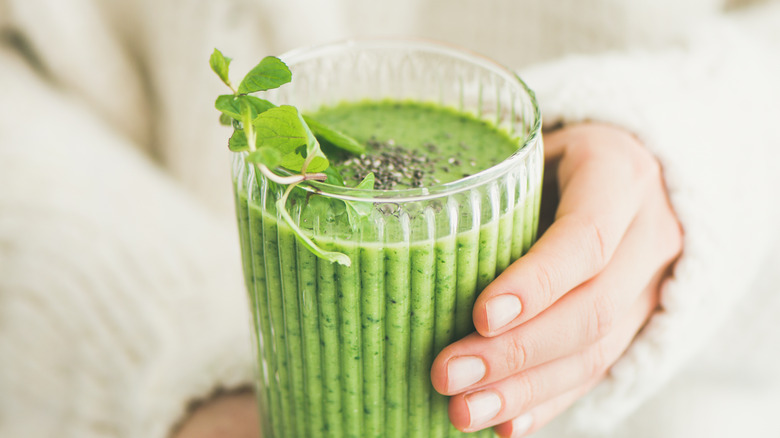
While some people feel calm after a steaming cup of coffee, others feel hyper and jittery. If you know you still need that caffeine kick but prefer a more mild, slower build, consider learning more about matcha. Matcha and green tea are similar, but have differences — matcha is a kind of powdered tea that comes from the same plant as green tea. It looks like bright green powder and is typically whisked into hot water to dissolve. Luckily, since it’s in powder form, it’s easy to add to smoothies.
Matcha has an earthy flavor and a bitter kick, so it pairs nicely with sweet fruit that can mellow out its intensity. Because of its color, we recommend adding it to a light-colored smoothie, because when matcha is blended with dark berries the beverage can become brown. Let matcha be the main flavor of the smoothie by adding frozen bananas or mango, along with non-dairy milk. Or simply blend matcha with vegan milk and ice to create an iced matcha latte. For a delicious plant-based matcha smoothie recipe, add no more than a tablespoon of the powder. It can easily become overpowering, and you want to avoid over-caffeinating.
Chia seeds
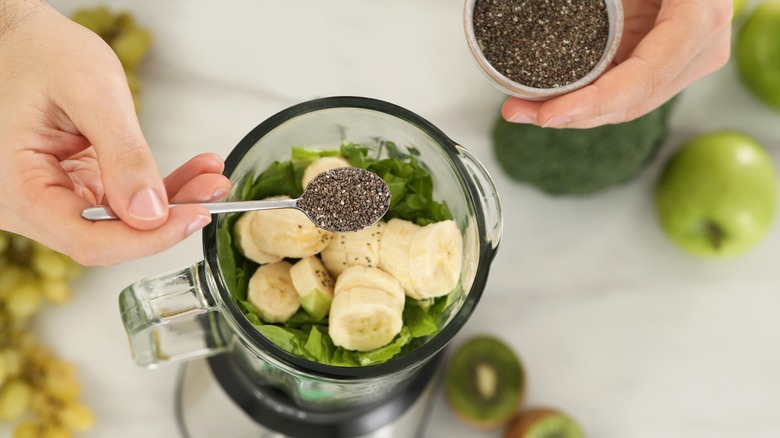
Unlike flaxseed, chia seeds can be added to a smoothie without disrupting the texture too much. In fact, chia seeds can help a smoothie hold its form as it melts, so it’s a great option for slow sippers. Chia seeds don’t add much to a smoothie flavor-wise, but are loaded with plant-powered omega-3 fatty acids, which are great for reducing inflammation and preventing diseases. Who knew so much power could be packed into such tiny seeds?
Chia seeds can be added to a smoothie after it’s blended for a subtle crunch similar to that of raspberry seeds. If they absorb the liquid in the smoothie, they become gel-like. Some find that gooey texture to be unpleasing, so if that’s the case, then opt to blend them right into a smoothie. This will result in a hardly noticeable texture change, but still contain all of the nutritional benefits.
Smoothie bowls are famous for having a sprinkling of chia seeds on top, providing superfood status and aesthetic appeal. Pair them with any smoothie or flavor profile, because chia seeds taste good with just about all fruits and spices. These little seeds are making a comeback in the kitchen, after being famous for those nostalgic Chia Pets with grassy fur. Cha-cha-cha-Chia!
Sweet potatoes
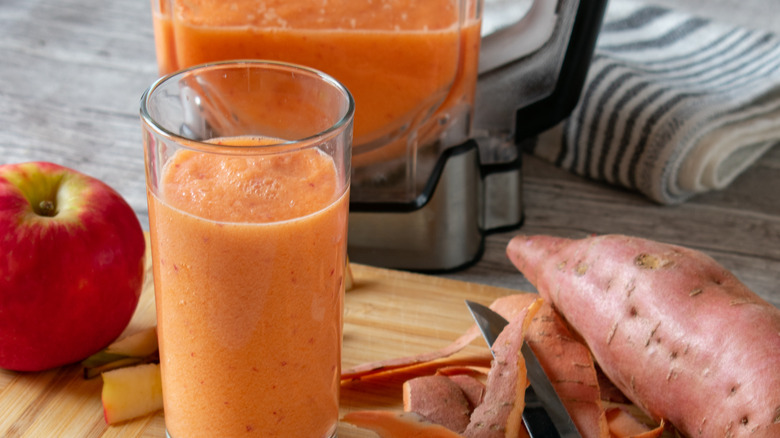
Being a root vegetable, it’s not surprising that sweet potatoes are loaded with natural sugars. There’s a reason we call them “sweet” in the first place — but even so, they are often found in a savory capacity. If you are a fan of baked sweet potatoes with cinnamon-sugar butter, or sweet potato baked with toasted marshmallows, then we have another delicious suggestion for you. Raw, cooked, or frozen sweet potatoes add an unexpected twist in smoothies.
Sweet potatoes are a great ingredient to use to thicken your smoothie. It’s subtle enough to be a secondary ingredient, but can also steal the show if desired. Blend with neutral sweet fruits, along with warming spices like cinnamon. Finish with your favorite dairy-free milk and power up that blender.
Unlike white potatoes, sweet potatoes can be eaten raw but are sweeter when cooked. Frozen sweet potato is a great smoothie ingredient to have on hand, because it never hurts to get a few servings of vegetables out of the way first thing in the morning. This starchy veggie will stick with you until lunch, so load up and get sipping!



